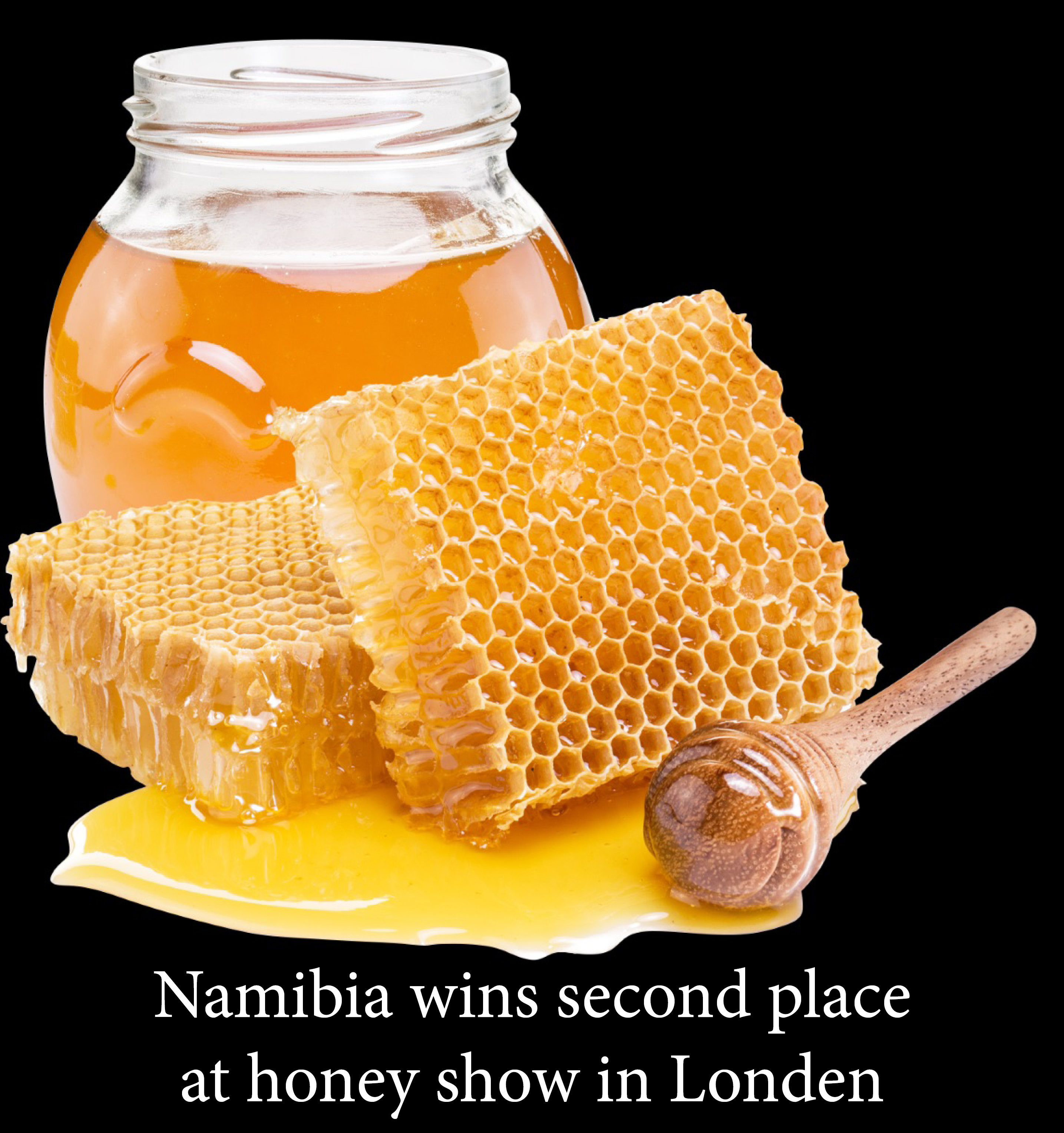In a first for the country, honey from Namibia was awarded second in its class at England’s prestigious National Honey Show.
The show, which ran from 26 to 28 of October, attracted 2 400 entries from 90 countries.
According to the Namibia Agricultural Union (NAU), the National Honey Show was held at the Sandown Park in Surrey, London, and was a gathering to celebrate beekeepers from all around the world and the fine art and science of beekeeping.
“This esteemed event, known for its competitive classes and unwavering commitment to promoting beekeeping, continues to shine as a beacon for both seasoned enthusiasts and newcomers to the field,” it said.
According to the NAU, the show was executed with the dedicated efforts of a sizeable volunteer team, involving approximately 250 individuals.
This included the invaluable support of 40 judges and their mentors as well as the diligent work of 210 stewards and 50 administrative staff members, ensuring the event’s smooth operation.
The event featured nearly 250 competitive classes where beekeepers could test their skills, knowledge and the quality of their honey and hive products.
“The show provided a platform for apiarists to vie for esteemed trophies and prizes, fostering a spirit of healthy competition and camaraderie within the beekeeping community,” the union said.
Sweet reward
Namibian farmers Johan and Liezl Lepen tasted the sweet reward of beekeeping when their honey scooped the second prize in Class 9, competing against entries from South Africa, Chile and Oman.
The Lepens embarked on an unforgettable beekeeping journey when a swarm of bees made a home on their farm.
This led them to enrol in a beginners’ beekeeping course, commencing their journey with a single beehive.
“Soon, one swarm of bees followed another, and they were welcomed with open arms,” the NAU said.
During May, the Beekeeping Association of Namibia hosted a honey-judging and -tasting event with support from FNB Namibia through the FirstRand Namibia Foundation.
The event was part of a week of activities aimed at raising awareness, and was held in collaboration with the Honey Judges Guild and the South African Beekeeping Industry Organisation.
With the evening proving to be a success, the Beekeeping Association of Namibia encouraged Johan to submit an entry to the National Honey Show.
Although he was not able to attend in person, he packaged three jars and sent them to the show for evaluation.
Invaluable lessons
Johan said the lessons learnt from this journey are invaluable as bees, with their diligent nature and crucial role in pollination, are a precious gift.
His hope is that their story will inspire more people to embrace beekeeping, recognising it not only as a source of food but also for its medicinal and ecological significance.
“The true value of bees lies in their vital role in sustaining and ensuring the reproduction of plants, supporting nature and contributing to the cycle of life.
The National Honey Show remains a guiding light for beekeepers and honey enthusiasts, fostering a profound appreciation for these remarkable insects and the golden nectar they produce,” he said.
The NAU added that the agriculture ministry, responsible for promoting sustainable agriculture, actively supports and participates in the Beekeeping Advisory Board. Furthermore, it will initiate a national survey for beekeeping industry development in early 2024 to provide an updated and accurate country report on apiculture.
The union said this endeavour is pivotal in providing the foundational data necessary for strategic planning and development.
“It will pave the way for safeguarding the honey market, establishing policies and fostering growth across various intersecting areas.”
Bee protection
According to the NAU, a focus on bee protection in Namibia is paramount, especially given the country’s status as one of the driest sub-Saharan countries.
“While Namibians are increasingly familiar with terms like global warming, desertification and erratic rainfall, the connection to the significance of bees may not be apparent.”
It is important to recognise that bees directly contribute to 80% of insect pollination, ensuring the reproduction of vegetation in the natural environment – not just the crops often associated with food production, it said.
The union added that past approaches to honey production have repeatedly fallen short, emphasising the need to prioritise bee production for the future.
Namibia boasts a remarkable biodiversity, with 342 bee species, including 64 unique to the country.
Bees can be found throughout the country, as long as they have access to fresh water.


